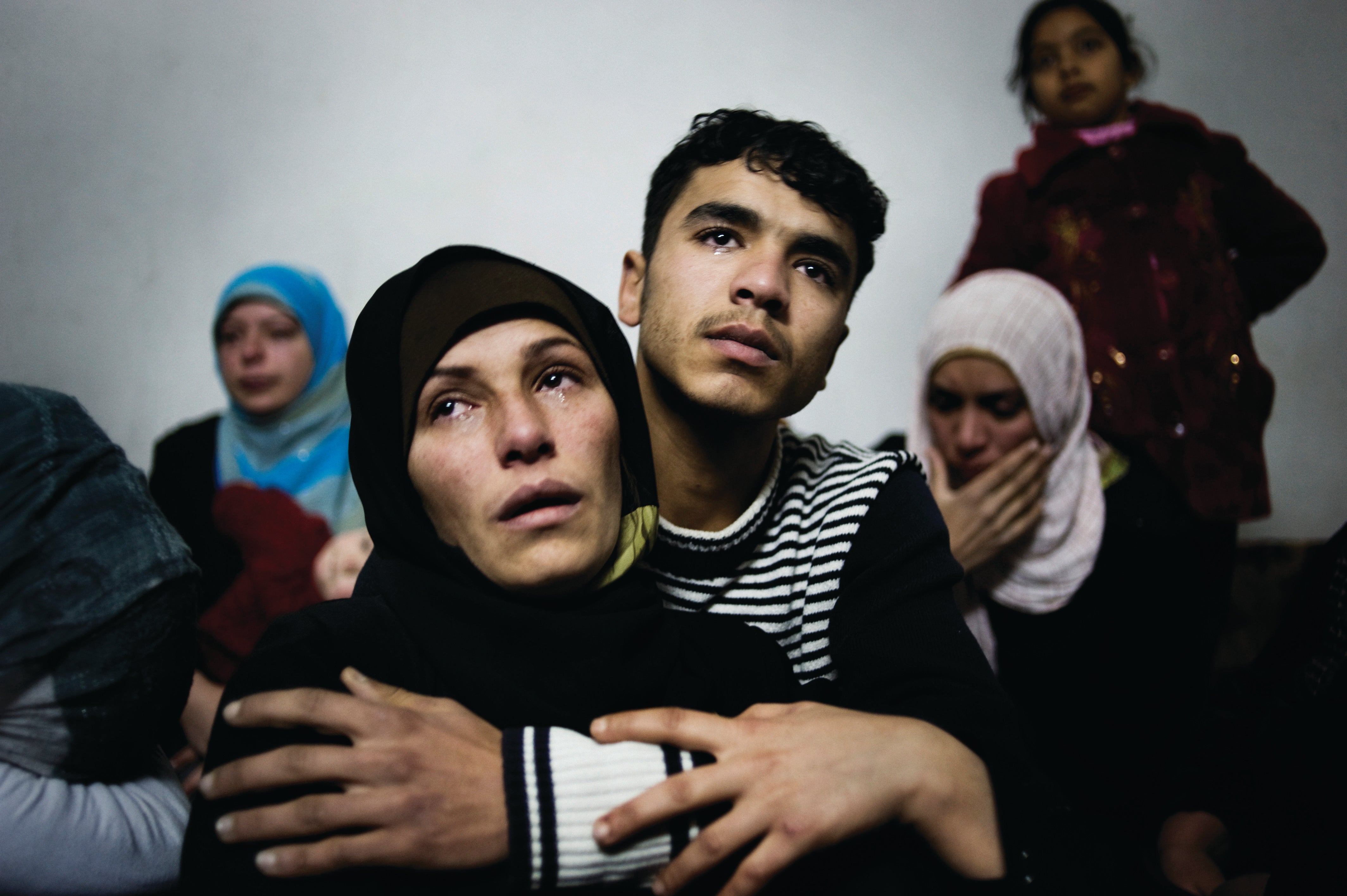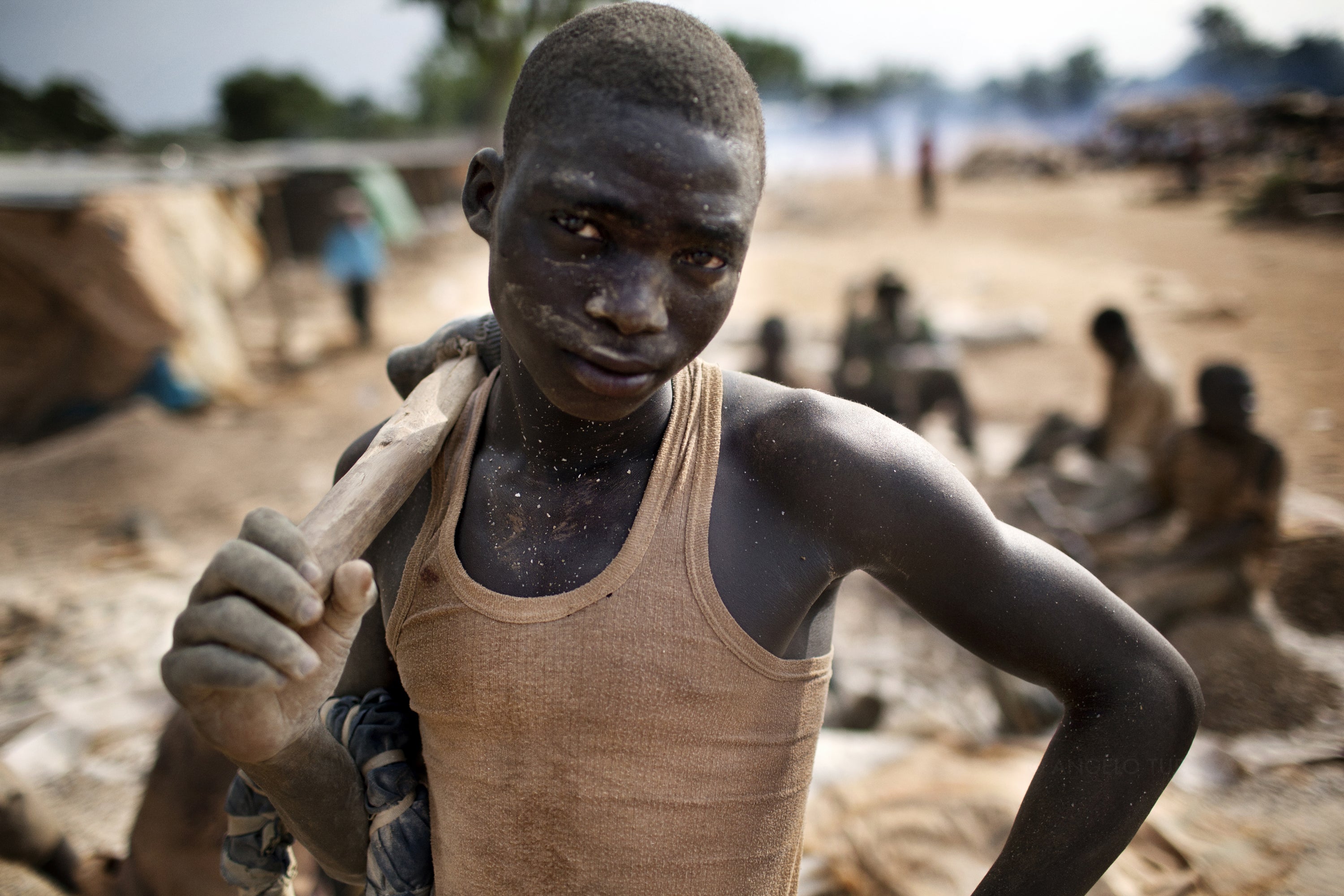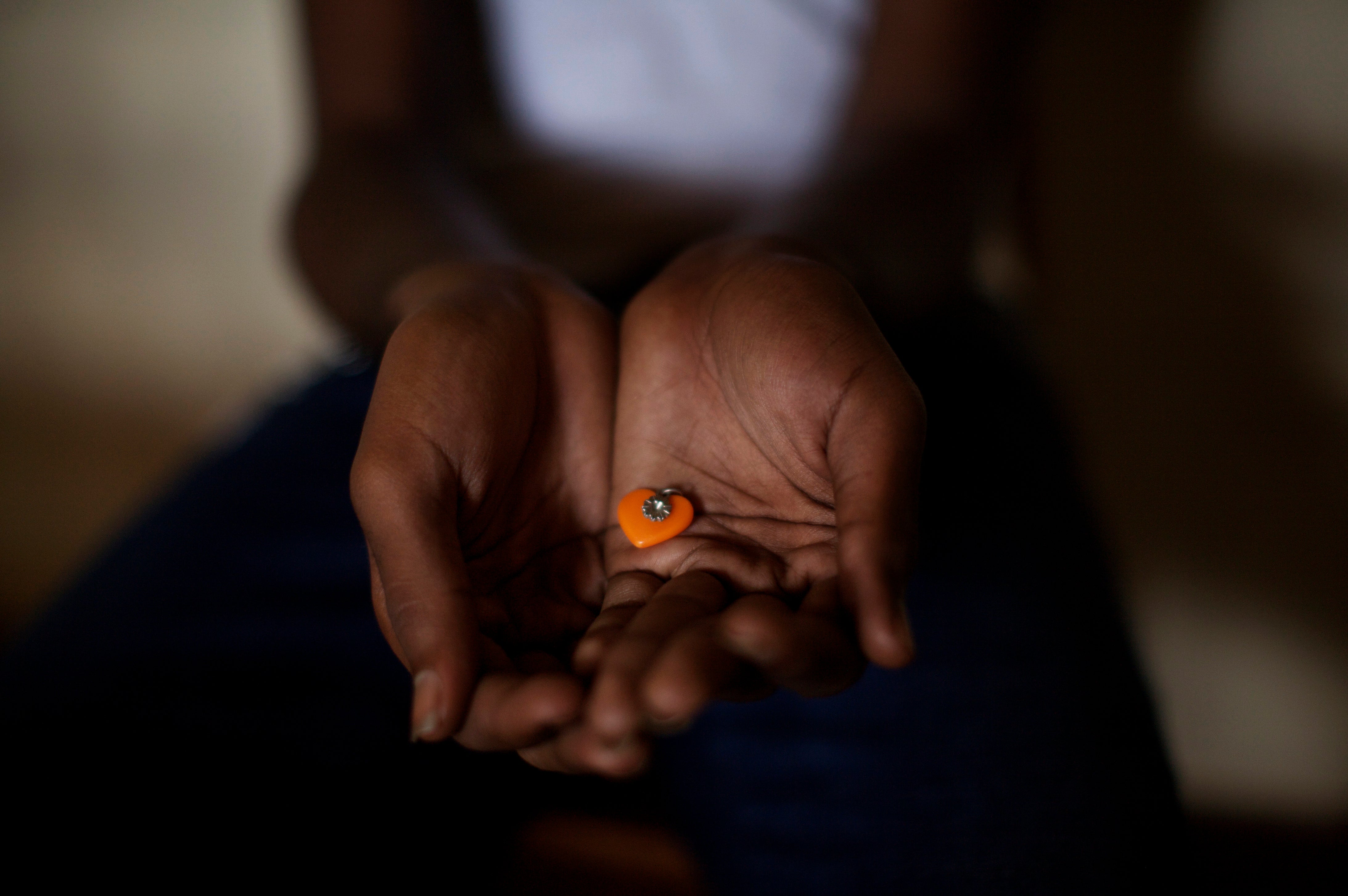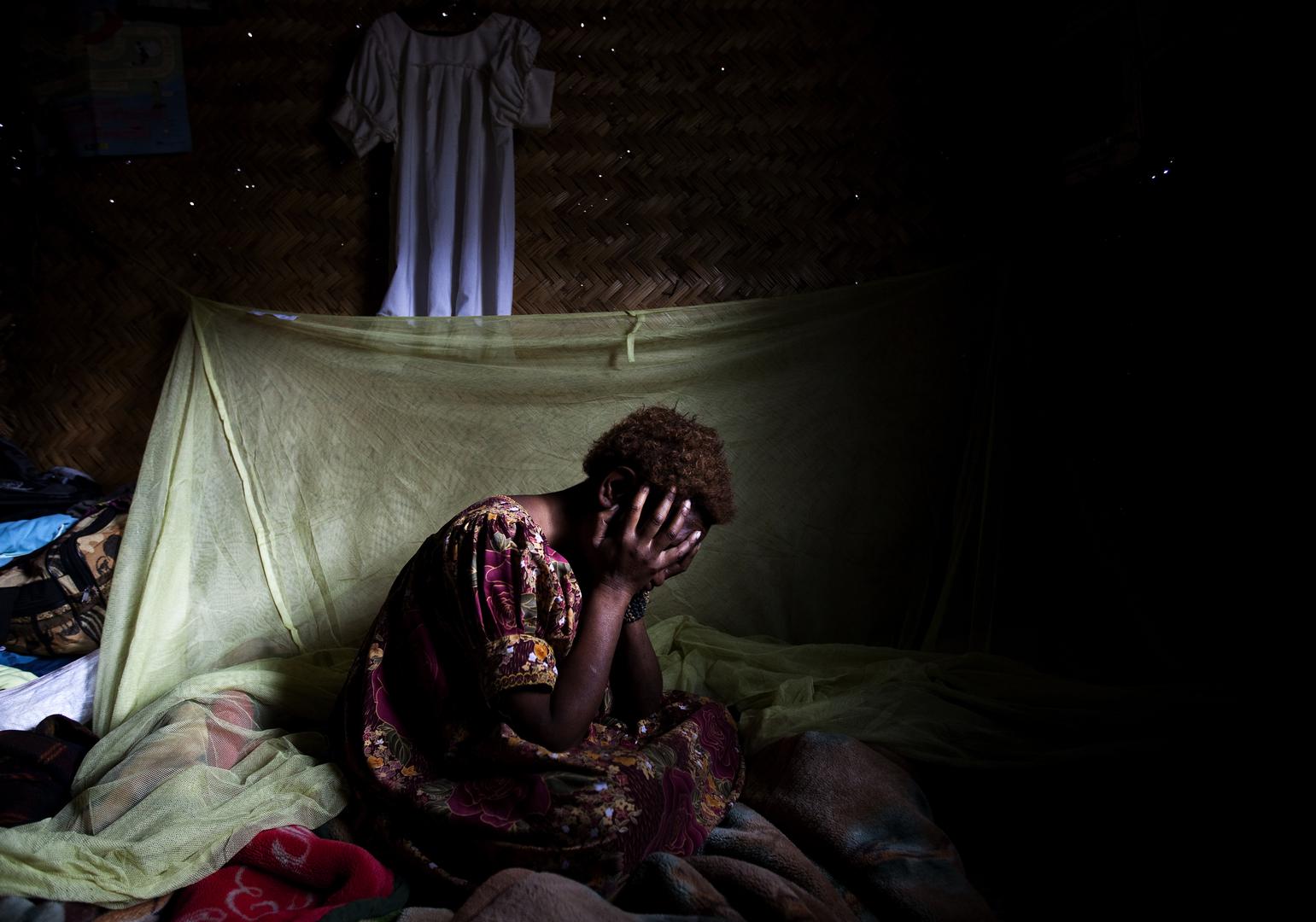Reforms in Lebanon were stagnant in 2012 as draft laws to stop torture, improve the treatment of migrant domestic workers, and protect women from domestic violence, remained stalled in parliament. Women face discrimination under personal status laws, and vulnerable groups report being mistreated or tortured by security force members during arrest and in custody. Lebanese authorities and humanitarian organizations have provided material assistance to the influx of Syrians fleeing their country’s fighting, but needs are increasing. Approximately 300,000 Palestinian refugees in Lebanon live in appalling social and economic conditions.
Torture, Ill-Treatment, and Prison Conditions
Despite repeated pledges by the Lebanese government to prevent torture and ill-treatment, accountability remains elusive. A number of former detainees, including refugees, migrants, drug users, lesbian, gay, bisexual, and transgender (LGBT) persons, and sex workers told Human Rights Watch that security force members ill-treated them during arrest or while they were in detention facilities, including the Ministry of Defense, the General Security detention facility in Adlieh, and the Hobeish police station in the capital, Beirut, which houses the Internal Security Forces’ (ISF) vice squad.
In July, the ISF vice squad arrested 36 men during a raid on a theater suspected of screening pornographic movies. The men were transferred to Hobeish police station, where they were subjected to anal examinations. Forensic doctors conduct the examinations on orders of the public prosecutor to “prove” whether a person has engaged in homosexual sex. The tests violate international standards against torture, including the Convention Against Torture and the International Covenant on Civil and Political Rights (ICCPR), which Lebanon has ratified. The Lebanese Doctor’s Syndicate denounced the tests as a form of torture and issued a directive in August calling on doctors not to conduct the examinations. In September, Justice Minister Shakib Qortbawi called for an end to the anal examinations.
In August, ISF arrested 14 Sudanese refugees and asylum seekers as they engaged in a sit-in in front of an entrance to the United Nations High Commissioner for Refugees (UNHCR) office in Beirut to protest the refugee agency’s handling of their cases. The refugees reported that ISF officials kicked, insulted, and threatened some of them while arresting them, and that when the group arrived at the General Security detention facility in Adlieh some of them were subjected to beating, humiliation, and threats, including threats of deportation.
On August 30, unidentified armed gunmen detained Lebanese Palestinian journalist Rami Aysha while working on an arms smuggling story. They beat him and transferred him hours later to Military Intelligence, who also beat him. He was released on bail on September 26.
In September, at two separate protests in front of the Lebanese parliament, one calling for electoral reform and the other for a non-religious personal status law, security forces also beat several protesters.
In October, members of the Lebanese army beat at least 72 male migrant workers in the Beirut neighborhood of Geitawi. The soldiers did not interrogate them about any specific incident, but accused them of “harassing women.” According to the Lebanese Army, they detained 11 of the migrants but did not specify the charges against them.
Lebanon has not yet established a national preventive mechanism to visit and monitor places of detention, as required under the Optional Protocol to the Convention against Torture (OPCAT), which it ratified in 2008. In October, the parliamentary Administration and Justice Committee began considering draft legislation that would establish a National Human Rights Institute, with a permanent Committee for the Prevention of Torture that would fulfill this obligation. The committee must approve the draft law before it is reviewed by parliament.
Refugees
Lebanon has witnessed an influx of Syrians escaping the crisis in their country. Most of the Syrians reside with host families or in ad hoc shelters, often in difficult circumstances, and in public accommodations, such as schools or rented apartments. At this writing, 95,452 Syrian refugees had registered with the UNHCR with an additional 34,275 waiting to be registered. Registration does not grant Syrians legal status, only a right to receive assistance. As a result, they face the risk of detention and deportation. Lebanon deported 14 Syrians back to Syria in August, four of whom said they feared persecution upon return.
Many Syrian refugees in Lebanon also report feeling insecure, particularly following the kidnappings of Syrians and other retaliatory attacks in August for the kidnapping of Lebanese by armed opposition groups in Syria.
The estimated 300,000 Palestinian refugees in Lebanon live in appalling social and economic conditions. 2012 saw no improvement in their access to the official labor market, despite a labor law amendment in 2010 that was supposed to ease such access. A survey conducted by the International Labour Organization (ILO) in 2011 found that only 2 percent of Palestinians have obtained work permits, that the majority earn less than the minimum wage, and that they are paid 20 percent less on average than Lebanese workers. Lebanese laws and decrees still bar Palestinians from working in at least 25 professions requiring syndicate membership, including law, medicine, and engineering, and from registering property.
Migrant Workers’ Rights
Migrant domestic workers are excluded from the labor law and subject to restrictive immigration rules based on employer-specific sponsorship—the kafala system—which put workers at risk of exploitation and abuse. In January, Labor Minister Charbel Nahhas announced that he would look at abolishing the kafala system, but he resigned over unrelated matters a month later. The newly appointed labor minister, Salim Jreissati, has yet to put forward legislation that would protect the estimated 200,000 migrant domestic workers from excessive work hours, non-payment of wages, confinement in the workplace, and in some cases, physical and sexual abuse. Migrant domestic workers suing their employers for abuse also face legal obstacles, and risk imprisonment and deportation due to the restrictive visa system.
In March, Alem Dechasa-Desisa, an Ethiopian domestic worker, committed suicide at the Deir al-Saleeb psychiatric hospital. Six days earlier, a video aired showing a labor recruiter physically abusing her outside the Ethiopian consulate in Beirut. Following a public outcry, the labor and justice ministers announced that they were opening investigations into Dechasa-Desisa’s beating and ill-treatment, but the outcome of the investigation had not been made public at this writing.
Women’s Rights
Parliament is still considering a 2010 draft bill that would protect women from domestic violence. In August 2012, a parliamentary subcommittee put forward an amended version of the bill limiting protections dealing with marital rape. As of November, parliament had yet to consider the amended bill.
Discriminatory provisions that significantly harm and disadvantage women continue to exist in personal status laws, determined by an individual’s religious affiliation. Women suffer from unequal access to divorce and, in the event of divorce, are often discriminated against when it comes to child custody. Lebanese women, unlike Lebanese men, still cannot pass their nationality to foreign husbands and children, and continue to be subject to discriminatory guardianship and inheritance law.
Legacy of Past Conflicts and Wars
In 2011, as part of the UN Human Rights Council’s (HRC) Universal Periodic Review (UPR) process, the government pledged to establish a national commission to investigate the fate of those Lebanese and other nationals who “disappeared” during and after the 1975-1990 Lebanese civil war and to ratify the International Convention for the Protection of all Persons from Enforced Disappearances (ICCPED). In October 2012, Justice Minister Shakib Qortbawi put forward a draft decree to the cabinet to establish the commission, which in turn formed a ministerial committee to examine the draft. Representatives of certain families of the disappeared and other groups proposed a draft law to set up the committee.
In 2011 and 2012, reports continued to emerge of Syrians and Lebanese kidnapped in Lebanon being taken to Syria. Suleiman Mohammed al-Ahmad, a Lebanese man, was kidnapped in June in Hisah, Lebanon, and transferred illegally into Syrian custody. He was returned after his relatives conducted a series of retaliatory kidnappings in Lebanon. An official joint Syrian-Lebanese committee established in May 2005 to investigate cases of Lebanese who “disappeared” at the hands of Syrian security forces had not published any findings at this writing.
In February, the UN’s special tribunal for Lebanon announced that it would proceed with an in absentia trial of four indicted members of Hezbollah for the killing of former Prime Minister Rafik Hariri in 2005. In July, the trial court rejected motions by the defense arguing that in absentia proceedings violate human rights. The trial is set to begin in March 2013.
Key International Actors
Multiple international and regional actors compete for influence in Lebanon. Regionally, Syria, Iran, and Saudi Arabia maintain a strong influence on Lebanese politics through their local allies.
France, the United States, and the European Union provide assistance for a wide range of programs, including military training, seminars on torture prevention, and civil society activities. However, these countries have not fully used their leverage to push Lebanon to adopt concrete measures to improve its human rights record, such as investigating specific allegations of torture or adopting laws that respect the rights of refugees or migrant workers.
As of August 2012, the UN deployed 11,360 peacekeepers at Lebanon’s volatile southern border with Israel as part of its 33-year-old peacekeeping force in the country.




